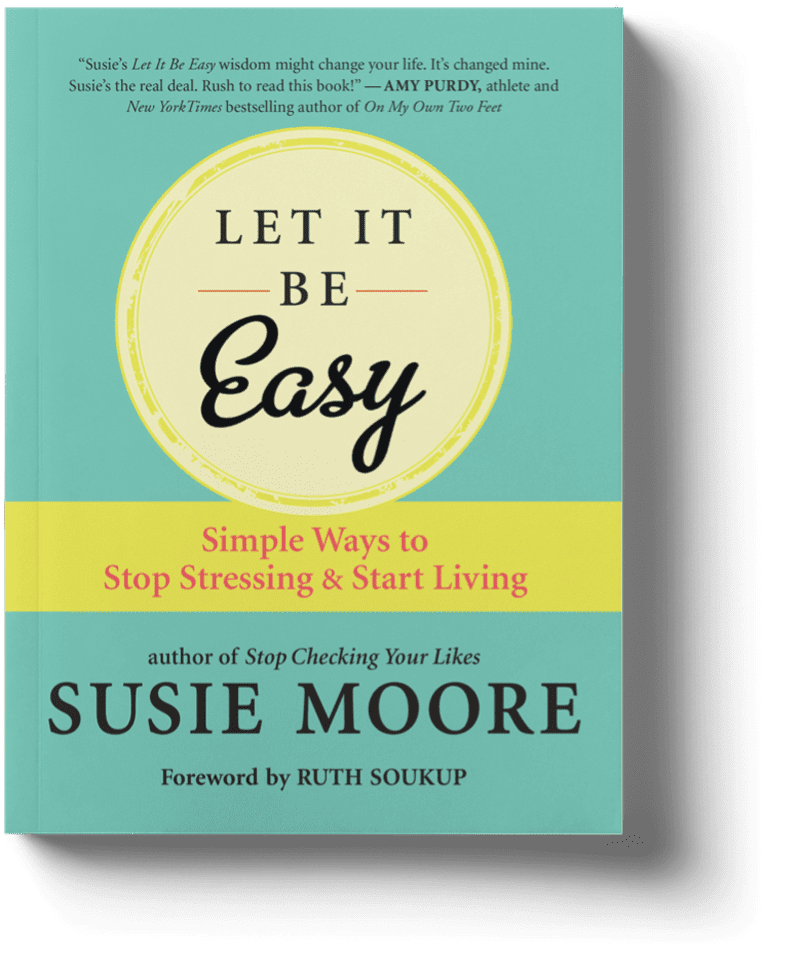When my husband and I were traveling in Europe a couple of years ago, I felt really overwhelmed and had a breakdown. I had a big fight with my sister, who we were traveling with. We turned up at our “three-star hotel,” which turned out to be a dirty, flea-ridden hostel. I was sunburned. I had a UTI. All roads led to a weepy tantrum of the worst kind.
As I sat alone in bar, feeling sorry for myself and worrying how we’d find accommodation that we could afford in peak season Spain, my husband walked in and sat next to me. “I found us a place” he said. “It’s nice, and our suitcases are already inside. I’ll make sure we get a refund for that disaster booking.”
What!?! I was shocked. I normally took care of organizing everything, so suffice it to say I was paralyzed with happiness in that moment (albeit a tad skeptical that he took care of it on his own). It was totally unexpected.
What happened in that moment? I dropped the ball. Turns out, this is an important thing to do. As Tiffany Dufu, author of brilliant book Drop the Ball, states, in moments of overwhelm “You need to learn to stop trying to do it all.”
How can you drop the ball in your life and make it work to your advantage? Here are some ideas:
1. Wait to respond to emails.
My client emailed me a couple of weeks ago with an urgent question. Normally I hop to it and send an answer, pronto. This time, I happened to be in a barre class, so didn’t see the message. By the time I was out, I saw a note from her: “Got it—ignore my last request, Susie!”
Boom. Job done without me.
Turns out, if you wait just a little, often things can work themselves out without you.
2. Assume the competence of others.
As a single mother of five, my mum naturally has less time to dedicate to each child and their individual needs. As a result, her daughters are pretty independent. We had to figure out most things on our own and navigate adulthood using our best instincts.
Contrast this to many helicopter parents I observe, supervising even the smallest needs of their children: “Is this the right place to use a comma on your college application, sweetie?”
Too much assistance might cause more harm than help in the long run. I love this quote I heard once: “A mother’s role isn’t to provide a shoulder to lean on, it’s to make leaning unnecessary.”
How can you take a step back in any relationship to allow the other person to use his or her own strength?
3. Ask for ideas.
A friend of mine was always in charge of organizing our group when it came to social stuff. She researched and made dinner reservations, coordinated our time off work and booked our travel destinations. She loved to be in charge. Until her life got busier with a baby, and she started to resent it.
Over time, she started to ask all of us for ideas. It lessened the load for her and upped the level of enjoyment for everyone else who had fun coming up with suggestions too.
If you are a Type A organizer who everyone turns to for guidance, instructions, and a plan, you can say, “ Hmmmm… I’m not sure on this one. What do you think?”
What happens may pleasantly surprise you!
4. Allow your co-workers to help.
Too many of us take pride in doing everything ourselves. We show up the earliest, lead the meetings, create the agenda and send the follow-up notes. What would happen if you just… asked for some help?
Asking for help is a major strength, not a weakness! And if you’re a senior team member, giving extra responsibilities to junior members will allow them to shine brighter. The ambitious ones will become obvious and love you for it too. Win-win!
5. Don’t negotiate.
My friend is always rushing home to bathe her kids and put them to bed, but when her flight was delayed on a business trip, her husband had to do it. Non-negotiable.
My friend is always taking care of her elderly father, but when she was sick herself, her brother had no choice but to step up. Non-negotiable.
My CEO friend’s assistant resigned on her with no notice. As a result, she could not hold an event she had planned (she was already juggling too much). She cancelled it. No one died. It was totally fine!
When you drop the ball with an unapologetic attitude, you might be surprised by the results. Still not convinced? Tiffany Dufu’s revised definition of “dropping the ball” might help: “To release unrealistic expectations of doing it all and engage others to achieve what matters most to us, deepening our relationships and enriching our lives.”
It turns out life might just be easier for you and more satisfying for everyone around you, all at once. If you let it.









